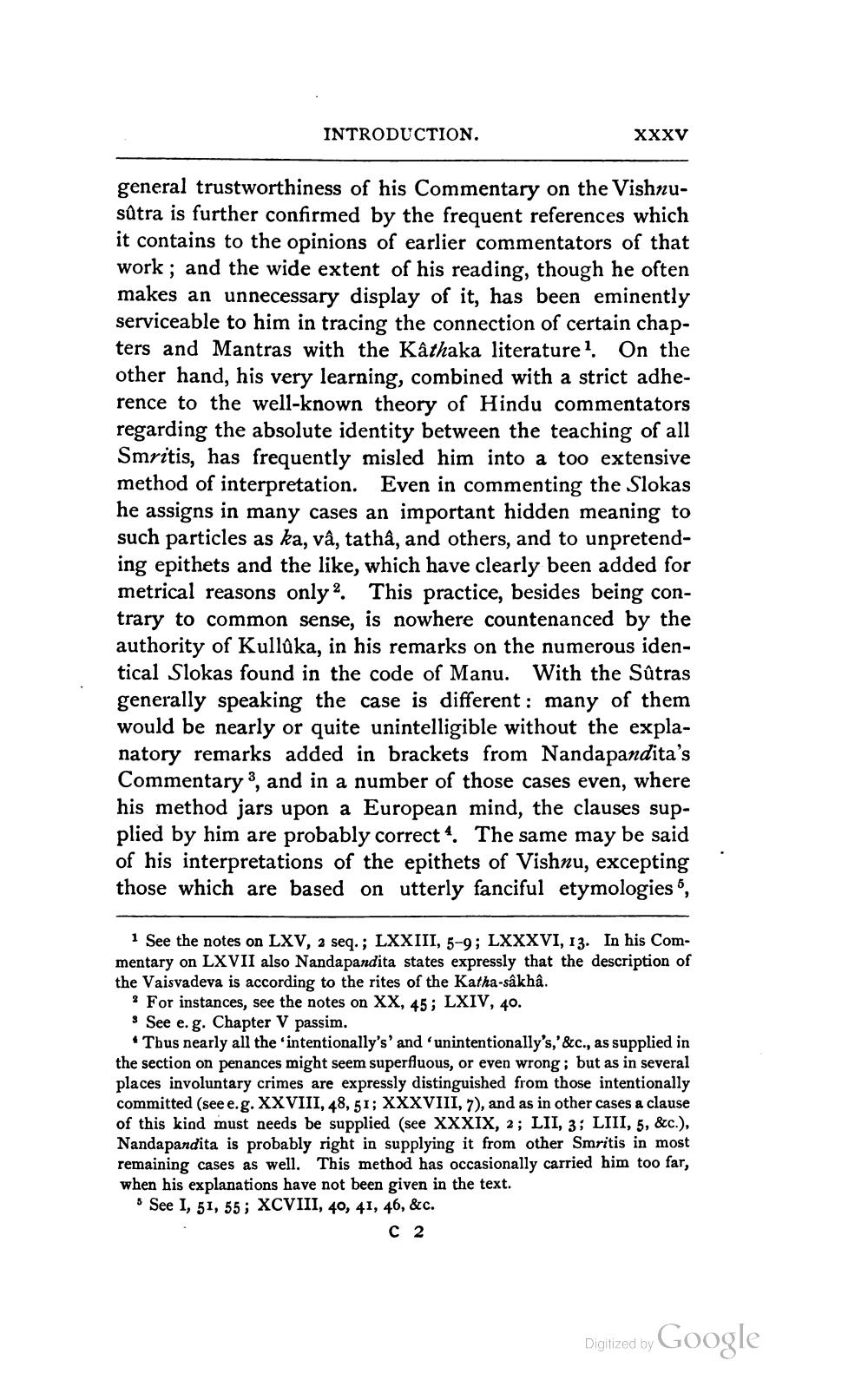________________
INTRODUCTION.
XXXV
general trustworthiness of his Commentary on the Vishnusûtra is further confirmed by the frequent references which it contains to the opinions of earlier commentators of that work; and the wide extent of his reading, though he often makes an unnecessary display of it, has been eminently serviceable to him in tracing the connection of certain chapters and Mantras with the Kâthaka literature1. On the other hand, his very learning, combined with a strict adherence to the well-known theory of Hindu commentators regarding the absolute identity between the teaching of all Smritis, has frequently misled him into a too extensive method of interpretation. Even in commenting the Slokas he assigns in many cases an important hidden meaning to such particles as ka, vâ, tathâ, and others, and to unpretending epithets and the like, which have clearly been added for metrical reasons only 2. This practice, besides being contrary to common sense, is nowhere countenanced by the authority of Kullûka, in his remarks on the numerous identical Slokas found in the code of Manu. With the Sûtras generally speaking the case is different: many of them would be nearly or quite unintelligible without the explanatory remarks added in brackets from Nandapandita's Commentary, and in a number of those cases even, where his method jars upon a European mind, the clauses supplied by him are probably correct. The same may be said of his interpretations of the epithets of Vishnu, excepting those which are based on utterly fanciful etymologies",
1 See the notes on LXV, 2 seq.; LXXIII, 5-9; LXXXVI, 13. In his Commentary on LXVII also Nandapandita states expressly that the description of the Vaisvadeva is according to the rites of the Katha-sâkhâ.
2 For instances, see the notes on XX, 45; LXIV, 40.
3 See e. g. Chapter V passim.
* Thus nearly all the 'intentionally's' and 'unintentionally's,' &c., as supplied in the section on penances might seem superfluous, or even wrong; but as in several places involuntary crimes are expressly distinguished from those intentionally committed (see e.g. XXVIII, 48, 51; XXXVIII, 7), and as in other cases a clause of this kind must needs be supplied (see XXXIX, 2; LII, 3; LIII, 5, &c.), Nandapandita is probably right in supplying it from other Smritis in most remaining cases as well. This method has occasionally carried him too far, when his explanations have not been given in the text.
5 See 1, 51, 55; XCVIII, 40, 41, 46, &c.
C 2
Digitized by Google




